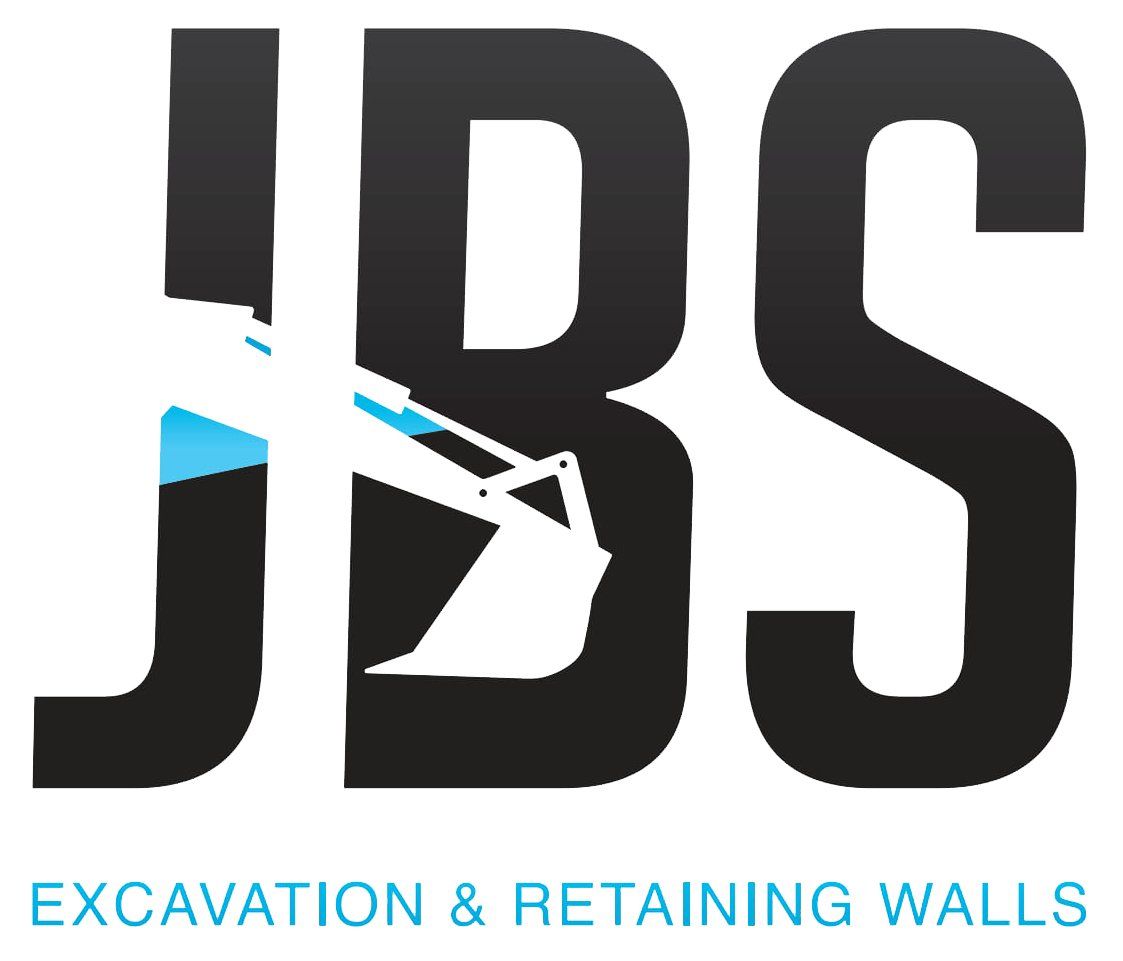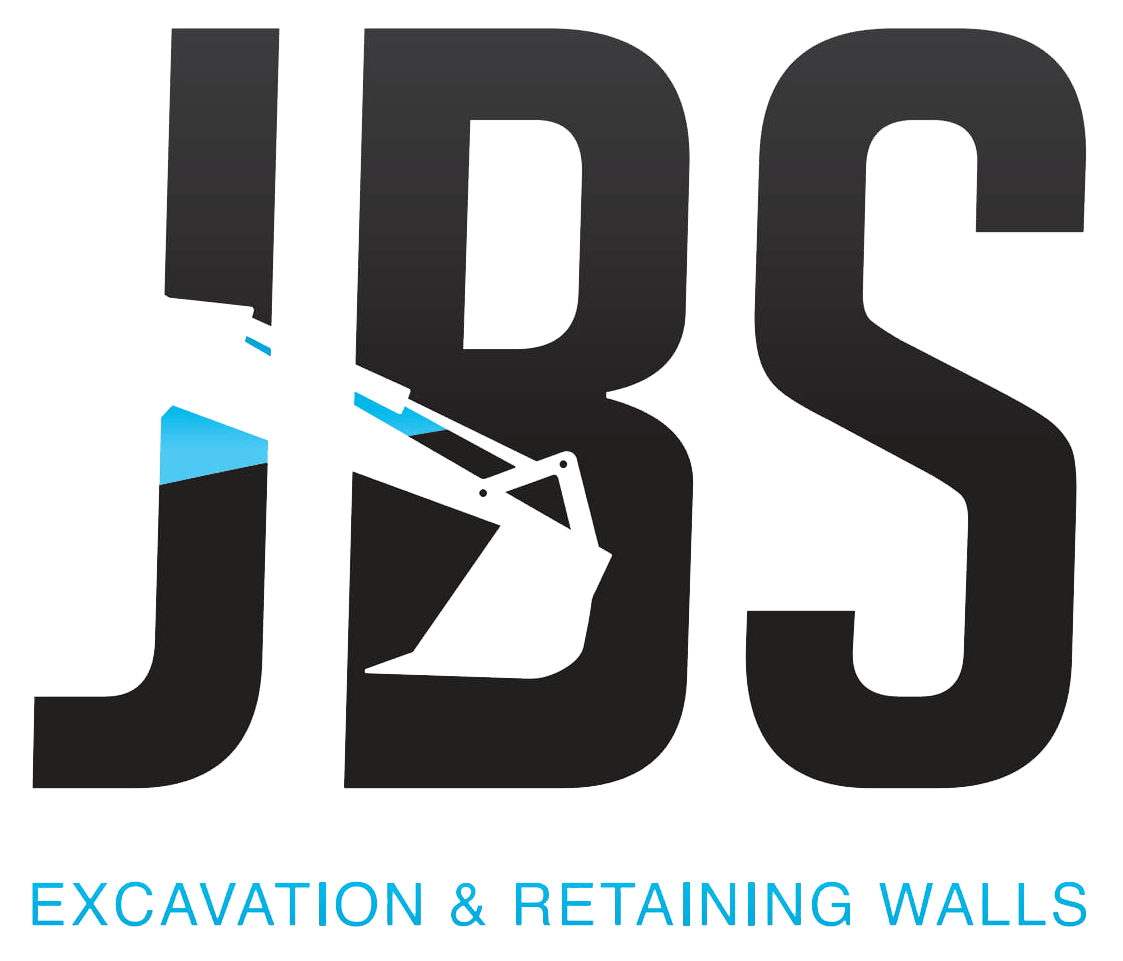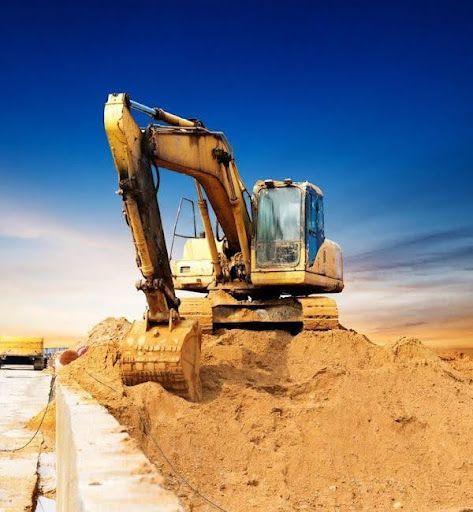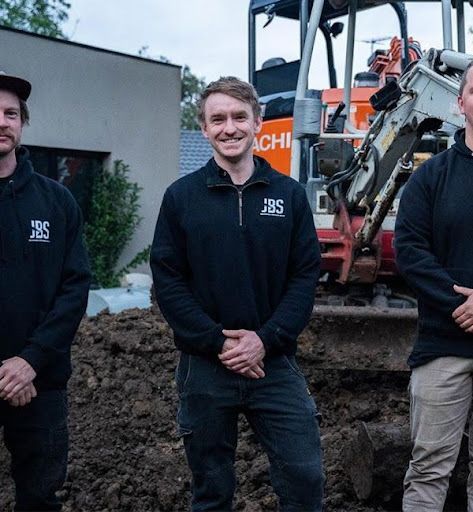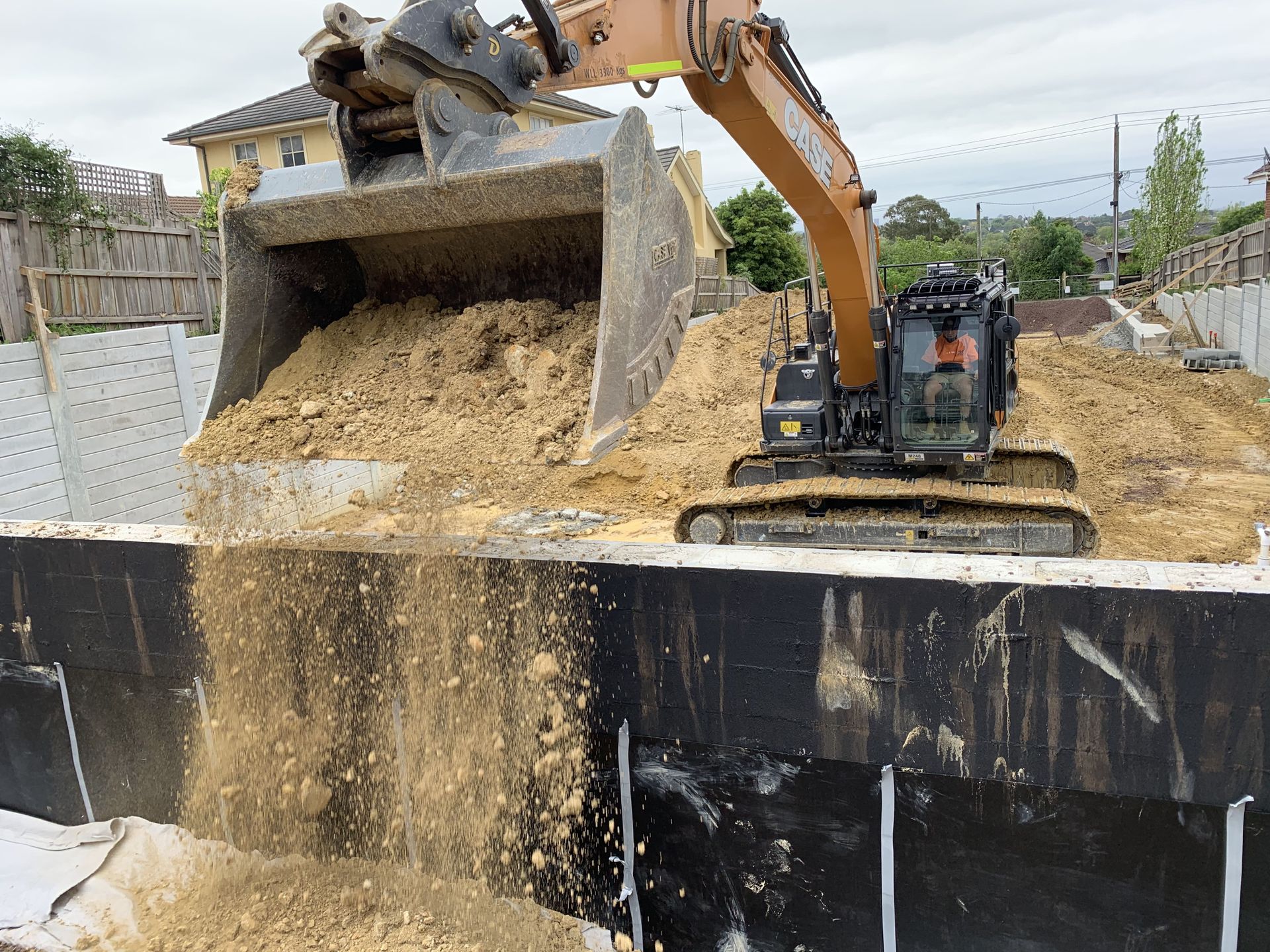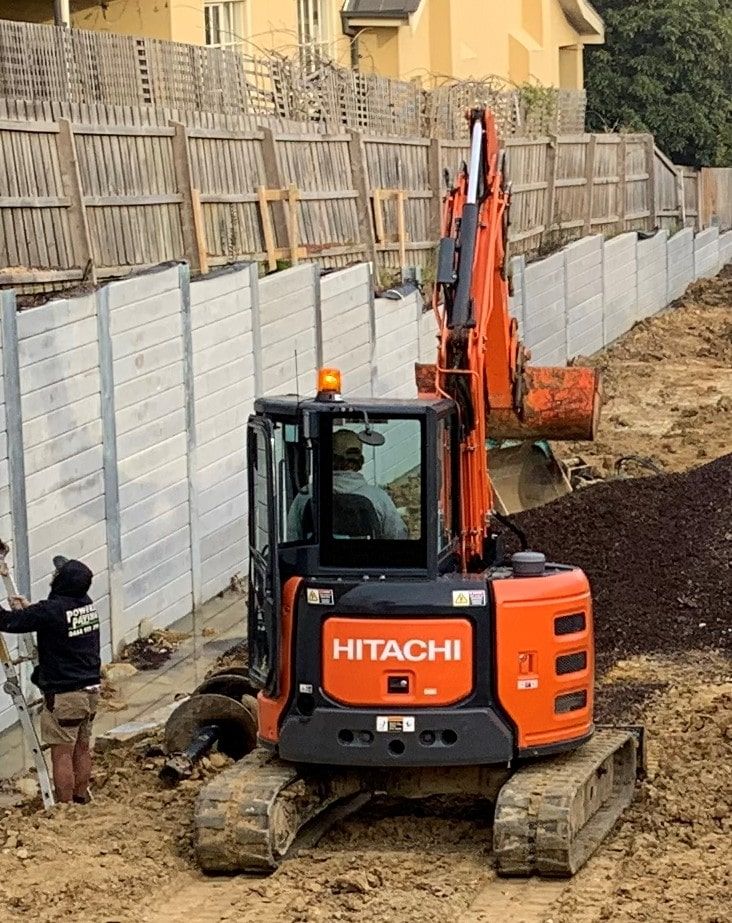Narre Warren Victoria 3805 Australia
0430 508-502
Safety First: A Comprehensive Guide to Excavator Rental Safety
Preparing for Excavator Rental
When considering excavator rental in the Emerald area, thorough preparation is paramount to ensuring the safety of both operators and bystanders. This entails several essential steps. First, conduct a comprehensive site assessment, identifying potential hazards like underground utilities, unstable terrain, or overhead obstructions, to select the appropriate excavator size and attachments. Ensure all required permits and clearances are obtained to comply with local regulations and prevent project delays. In situations where excavation near residential areas with underground utility lines is planned, contacting utility companies to mark their lines before digging is a wise precaution. Additionally, assess the operator's suitability by verifying their training and certification in excavator operation and matching their expertise with the specific job requirements. Failure to do so can jeopardise both productivity and safety. Lastly, establish clear communication channels among all project stakeholders, including the rental company, on-site personnel, and subcontractors, to facilitate swift response and coordination in case of emergencies or unexpected challenges during excavation operations.
Now that we've covered the vital aspects of preparing for excavator rental, let's move on to recognising job needs and requirements—a fundamental step that should not be overlooked.
- According to the Bureau of Labour Statistics, in 2020, out of approximately 5,333 fatal workplace injuries reported in the United States, around 13% were associated with working around heavy equipment like excavators.
- In a 2017 CDC report, it was found that construction workers represented nearly half of all worker fatalities involving heavy machinery, reinforcing the importance of safety regulations.
- The National Safety Council reports that in 2020, adherence to excavation and trenching safety guidelines could have prevented approximately 50% of excavation- or trenching-related accidents.
Recognising Job Needs and Requirements
Each excavation project comes with unique needs and requirements. Before engaging in excavator rental, it is crucial to thoroughly assess and understand the specific job parameters. Failure to do so can lead to unnecessary expenditure, delays, or even safety hazards.
First, consider the type of material you will be excavating. Different soil types, such as clay, sand, or rock, may require different excavator attachments or modifications. Understanding the nature of the material will help you determine the appropriate machine specifications necessary for efficient and safe excavation.
Think of it this way: trying to excavate hard rock with an excavator that is only suited for soft soil is like using a regular knife to cut through a thick steak—it's not an ideal fit and will result in frustration and inefficiency.
Let's say you are working on a landscaping project that requires digging trenches for irrigation pipes. In this case, a mini excavator may be more suitable due to its compact size and manoeuvrability in tight spaces. On the other hand, if you're working on larger-scale construction projects, a standard excavator with greater digging capacity might be necessary.
Additionally, consider the depth and width of the excavation required for your project. This information will help you determine the reach and bucket size needed for efficient digging. Overestimating or underestimating these measurements can lead to complications during excavation operations.
It is also important to take into account any specific site conditions that may affect the operation. Factors such as limited access points, nearby structures, or environmental sensitivities may require special considerations when choosing an excavator and determining safe operating procedures.
For instance, if your excavation site is located in a densely populated area with limited space available, opting for a compact excavator can help navigate restricted access points while minimising disruptions to surrounding structures.
Lastly, consider the duration of your excavation project when renting an excavator. Rental rates may vary depending on the length of time required, so it's essential to accurately estimate the project timeline to avoid unnecessary costs.
Having a comprehensive understanding of the job needs and requirements will ensure that you choose the right excavator for your project.
Preparing for Excavator Rental
Operating an excavator demands skill, knowledge, and keen attention to safety and efficiency. Before you begin, familiarise yourself with the machine's controls and functions, as well as the model-specific operating procedures outlined in the operator's manual provided by the rental company or manufacturer.
- Controls and Functions: Learn the various controls, such as joysticks for boom, arm, and bucket movement, and pedals for track control. Understanding which lever corresponds to each movement is essential for safe and efficient operation, particularly for specific tasks like digging trenches.
- Pre-Operation Inspection: Conduct a thorough inspection before starting the excavator. Look for mechanical issues or visible damage that could compromise safety, check fluid levels, and ensure no leaks are present. Inspect tracks or tyres for wear and tear, and examine hydraulic hoses for damage or leaks.
- Safety Measures: Inside the cab, securely fasten your seatbelt to reduce the risk of injury during unexpected movements or accidents. Adjust your seat and mirrors for optimal visibility around your work area.
- Situational Awareness: Maintain situational awareness by scanning your surroundings before making any movements and being cautious of nearby workers or obstacles. Use hand signals or two-way radios to communicate effectively with ground crew members when needed.
- Practice and Learning: Remember that practice is key. Start with simpler tasks to become comfortable with excavator manoeuvres. Seek guidance and feedback from experienced operators who can offer valuable insights into proper techniques and safety precautions.
Strict Adherence to Safety Directives
When it comes to operating heavy machinery like excavators, strict adherence to safety directives is paramount. Ensuring the safety of yourself and those around you should always be your top priority. Here are some essential safety measures to keep in mind:
"Safety first is safety always." Charles M. Hayes
One crucial aspect is wearing appropriate personal protective equipment (PPE). This typically includes a hard hat, high-visibility clothing, steel-toe boots, and gloves. PPE helps shield you from potential hazards such as falling objects or accidental contact with sharp materials.
Just as a knight gears up with armour before heading into battle, wearing PPE provides you with a layer of protection during your excavator operations.
Before starting any excavation work, it's vital to verify the presence of underground utilities through utility markings or by contacting relevant utility companies. Failure to do so could result in dangerous accidents or damage to crucial infrastructure.
Regular maintenance and inspections of the excavator are crucial for identifying any potential issues that may compromise safety. Ensure that all parts and components are in proper working order, including lights, brakes, hydraulics, and safety devices. Report any malfunctions immediately to prevent accidents and injuries.
Imagine you're working on a construction site where several excavators are operating simultaneously. It's vital to establish clear communication protocols and coordinate your movements with other operators. Utilise hand signals or two-way radios to ensure everyone is aware of each other's actions and intentions.
Additionally, implement safe work practises for material handling and lifting operations. This includes securing loads properly, using appropriate lifting attachments like slings or chains, and ensuring stability during lifting tasks.
Remember that maintaining vigilance and continuously assessing risks are essential when operating an excavator. Stay updated on safety guidelines and training to enhance your knowledge and skills.
Getting Comfortable with Machinery
Before operating an excavator, it is crucial to familiarise yourself with the machine and its controls. Regardless of your level of experience, taking the time to understand the functions and safety features will greatly contribute to a safe and efficient working environment.
- Read the Manual: Start by carefully reading the operator's manual that the rental company or manufacturer has provided. This comprehensive guide offers essential information on machinery operations, hazard identification, and troubleshooting procedures.
- Visual Inspection: Before starting the excavator, conduct a visual inspection. Look for signs of damage, leaks, or loose parts. Pay special attention to critical components like hydraulic lines, engine belts, and bucket attachments. Report any concerns to the rental company for necessary repairs.
- Control Panel Familiarisation: Enter the cab and acquaint yourself with the control panel. Learning the joystick controls responsible for operating the boom, arm, bucket, and tracks Take note of emergency shut-off buttons or switches for rapid power cutoff in emergencies.
- Supervised Practice: Gain confidence by practising under supervision before tackling complex tasks independently. Start with simple manoeuvres such as digging small holes or navigating around obstacles. This gradual approach helps build your skills and comfort level.
- Model-Specific Knowledge: Keep in mind that different excavator models may have varying control configurations and operating procedures. If you switch between machines for different work projects, make sure to familiarise yourself with each specific model's controls and safety features.
Safety Precautions for Excavator Rental
When it comes to operating heavy machinery like an excavator, safety should always be the top priority. Adhering to proper safety precautions not only protects you but also those around you. Here are some key safety measures to follow when using an excavator:
- Training and Certification: Ensure that you have received appropriate training in operating an excavator. Obtain the necessary certifications or licence required by your jurisdiction to legally operate heavy machinery.
- Safety Gear: Prioritise personal protective equipment (PPE) such as hard hats, high-visibility vests, steel-toed boots, and eye and ear protection. Wear these items at all times while operating the excavator.
- Maintain a Safe Distance: Always keep a safe distance from other workers on the site when operating an excavator. Visualise a safety zone around the machine and ensure everyone respects it to prevent accidents.
Gear up with Safe Equipment
When it comes to excavator rental safety, one of the most critical aspects is ensuring that you have the right gear and equipment. Your personal protective equipment (PPE) should not be taken lightly, as it serves as your first line of defence against potential hazards. So, what are the essential pieces of PPE you need?
First and foremost, a hard hat is a must. It protects your head from falling debris or objects that could cause serious injury. Additionally, wearing a high-visibility vest ensures that you remain visible to other workers on the job site, reducing the risk of accidents caused by poor visibility.
Next on the list are steel-toed boots. These sturdy footwear options safeguard your feet from heavy machinery or objects that might accidentally come into contact with them. Additionally, they provide traction to prevent slips and falls on uneven surfaces.
To protect your hands, always wear heavy-duty gloves. Not only do they shield your skin from cuts and abrasions, but they also offer better grip and control when operating the excavator.
For instance, imagine an operator wading through rocky terrain inside the cabin of an excavator without wearing proper gloves. In an unforeseen event where they need to swiftly manoeuvre or stabilise the machine, their unprotected hands might get injured due to sharp edges or rough surfaces.
Lastly, don't forget about eye protection. Safety glasses or goggles shield your eyes from flying debris and particles that can cause severe damage if they come into contact with your eyes.
Remember: Each piece of PPE plays a vital role in ensuring your overall safety while operating an excavator rental. Neglecting even one item could significantly increase the risk of injuries or accidents.
Safety Precautions for Excavator Rental
Completing a job with an excavator doesn't mean the safety measures end there. It's crucial to prioritise post-excavator job follow-ups to ensure everything is in order and mitigate potential risks for future jobs. What are the key steps you should take?
Firstly, perform a thorough inspection of the work area. Look for any signs of instability or changes in the landscape due to excavation activities. Address any issues immediately to prevent accidents or hazards for future workers or pedestrians.
Next, it's crucial to clean and maintain the excavator itself. Remove any excess debris or soil around the machine and its components. This not only keeps the work area clean but also guards against potential equipment damage due to dirt buildup.
Just as you would clean and store your tools after finishing a DIY project at home, cleaning and maintaining an excavator ensures its longevity and readiness for future use.
Another essential follow-up step is documenting any incidents, near misses, or safety concerns during the job. This information can help identify patterns or areas that need improvement, ultimately enhancing safety protocols for future excavation projects.
Lastly, it's essential to conduct a debriefing session with the team involved in the excavator rental job. Share observations, address any concerns raised, and discuss ways to improve safety measures even further.
By diligently completing these post-excavator job follow-ups, you not only demonstrate your commitment to safety but also create a culture of continuous improvement within your team.
Machine Health Check After Use
Ensuring the safety of everyone in and around an excavator is of paramount importance, and one crucial aspect of excavator rental safety is conducting a thorough machine health check after each use. This post-operation inspection helps identify any potential issues or damages that may have occurred during the damage, ensuring that the equipment remains in optimal working condition for the next user.
So, what should you include in your machine health check routine? Let's go through some key components:
- Visual Inspection: Begin by visually inspecting the excavator for any signs of damage, leaks, or loose components. Check the body, tracks, boom, bucket, hydraulic hoses, and cylinders. Look out for cracks, dents, or excessive wear and tear.
- Fluid Levels: It's important to check fluid levels such as engine oil, coolant, hydraulic fluid, and fuel. Ensure they are at the recommended levels, and top up if necessary.
- Philtres: Regularly inspect and clean or replace air filters and fuel philtres to maintain proper airflow and prevent contaminants from entering the engine system.
- Tyres/tracks: Examine the condition of tyres or tracks. Look for signs of wear or damage, such as cuts or bulges in the tyres or worn-out track pads. Proper tyre pressure should also be maintained.
- Electrical Systems: Check that all lights, indicators, windscreen wipers (if applicable), alarms, and backup cameras (if equipped) are functioning correctly. These systems play a significant role in maintaining safety during operation.
- Attachments: Inspect any attachments used during excavation work, such as buckets or hammers. Look for signs of damage or excessive wear on teeth or cutting edges. Any faulty attachments should be replaced or repaired before the next operation.
- Documentation: Finally, ensure that all necessary documentation related to the rental excavator is organised and returned along with the equipment. This includes logbooks, maintenance records, and any incident reports, if applicable.
Conducting a machine health check after use not only helps identify potential issues but also promotes accountability and ensures that the equipment remains safe for future operators. It is crucial to follow manufacturer guidelines and recommendations throughout this inspection process.
By developing the habit of conducting thorough post-operation machine health checks, you contribute significantly to excavator rental safety measures. Your diligence not only protects those operating the equipment but also ensures that the excavator functions optimally throughout its lifespan.
What qualifications should someone have before operating an excavator?
Before operating an excavator, individuals should have a valid operator's licence or certification obtained through proper training programmes. They should also possess a thorough understanding of safety regulations and best practises, including knowledge of different types of excavators and their specific operating requirements. Statistics show that proper training significantly reduces the risk of accidents and ensures efficient and effective operation, thereby promoting safety on construction sites.
How can one avoid hazards when digging near underground utilities?
When digging near underground utilities, it is crucial to follow safe practises to avoid hazards. Firstly, it's essential to consult utility maps or call 811 to identify the exact location of buried lines before digging. Additionally, using non-destructive excavation techniques such as vacuum excavators or hand digging can help prevent accidental damage. According to a report by the Common Ground Alliance, there were over 439,000 reported incidents of underground utility damages in 2022, emphasising the importance of taking precautions to protect both yourself and the infrastructure.
What should you do if you encounter an unexpected problem while operating an excavator?
In the event of an unexpected issue while operating an excavator, prioritise personal safety. Halt all operations, secure the excavator to prevent further problems, and inform your supervisor or relevant authority, following their guidance. Remember, safety is paramount; no task is worth risking injury or fatalities. OSHA's study highlights that one-third of construction-related fatalities result from equipment accidents, underscoring the urgency of swift action in such scenarios.
What protective gear is necessary when operating an excavator?
When operating an excavator, ensure personal safety with protective gear: wear a hard hat for head protection, safety goggles for eye safety, earplugs or earmuffs to reduce noise exposure, and steel-toed boots for foot safety. High-visibility clothing is also crucial for worksite visibility and accident prevention. Proper personal protective equipment usage, as per OSHA statistics, can reduce workplace injuries and fatalities by up to 70%.
What are some common mistakes people make when using an excavator, and how can they be avoided?
Common excavator mistakes, like skipping pre-operation checks, neglecting safety gear, and lacking proper training, can be prevented with these steps: First, perform thorough pre-operation checks to ensure the machine's condition. Second, wear essential safety gear like hard hats, high-visibility vests, and steel-toed boots to reduce injury risks. Lastly, get adequate training in excavator operation and safety to avoid accidents and enhance efficiency. Insufficient training is a key factor in many excavator-related accidents, as per an InterNACHI study.
If you're in need of safe and reliable specialist equipment for your projects in the Emerald area, look no further than JBS WALLS. We provide top-quality excavator hire services to meet your construction and excavation needs. Our well-maintained excavators and experienced operators ensure efficient and safe operations on your job site. Contact us today to discuss your requirements and secure the equipment you need to get the job done right. Trust JBS WALLS for all your excavator hire needs in the Emerald area.
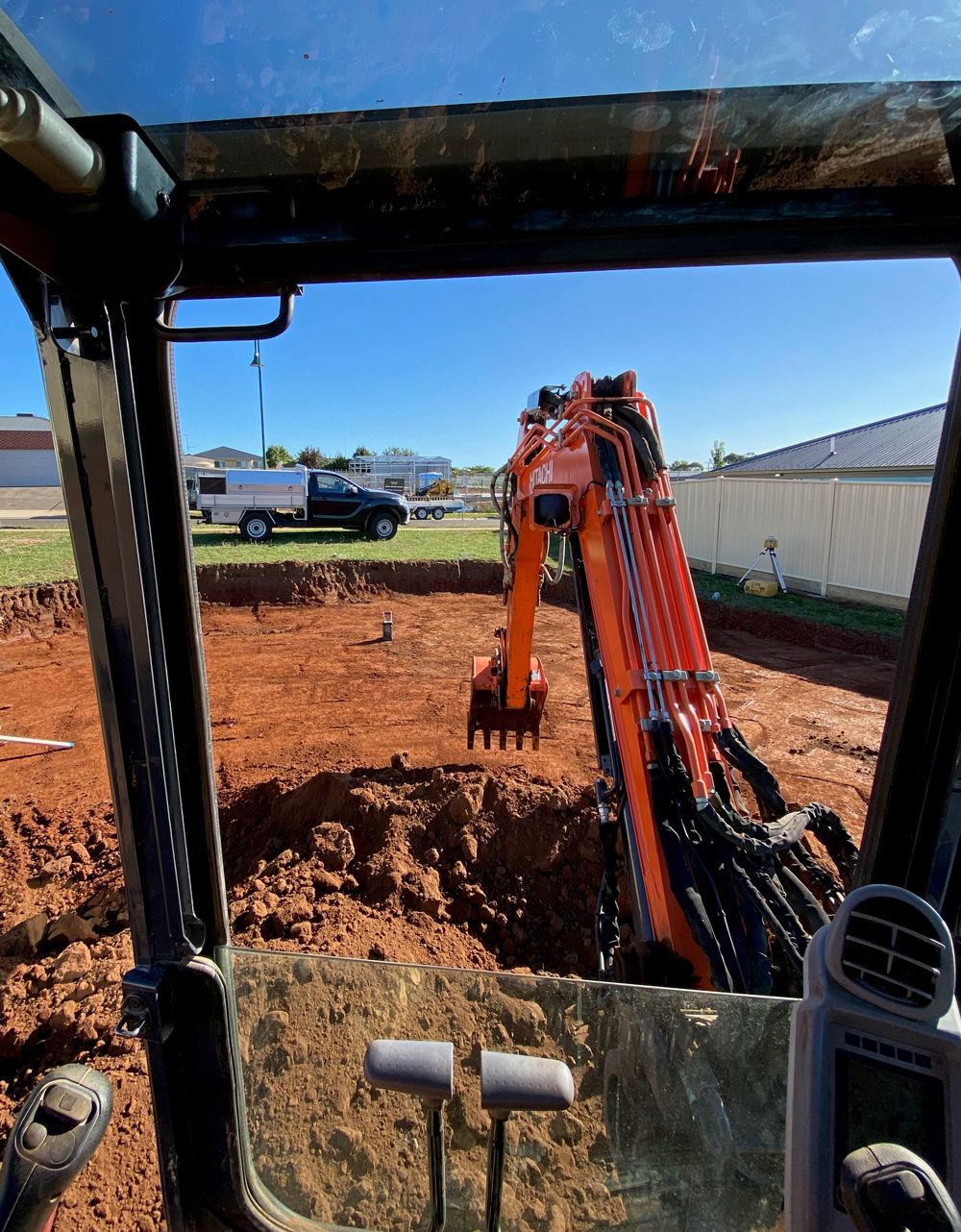
JBS Excavation & Retaining Walls is a specialist retaining wall company operating out of Narre Warren in South East Victoria. We work with a wide range of client all from top end builders to the private community.
QUICK LINKS
CONTACT INFORMATION
SERVICE AREA
Operating out Narre Warren in South East Victoria
We have been established since late 2017
JBS Excavation and Retaining Walls. All Rights Reserved | Privacy Policy | Website by Octopus Digital
